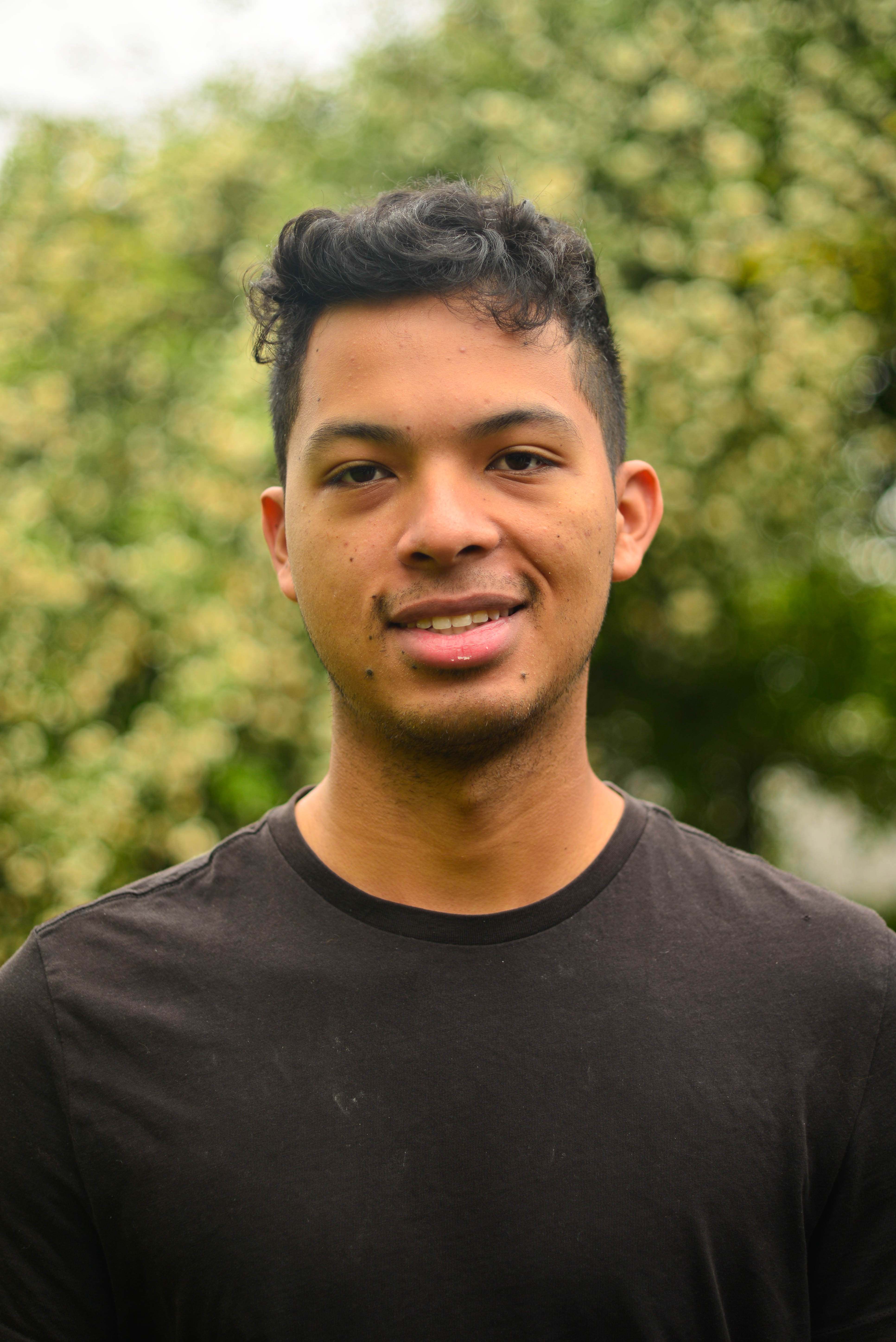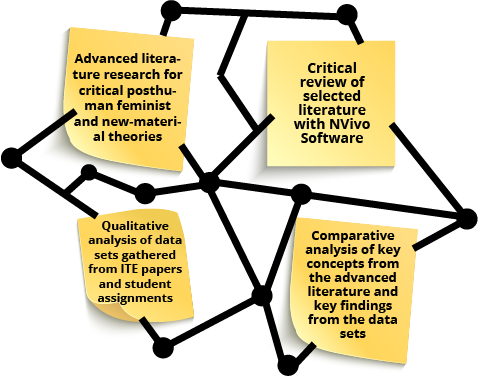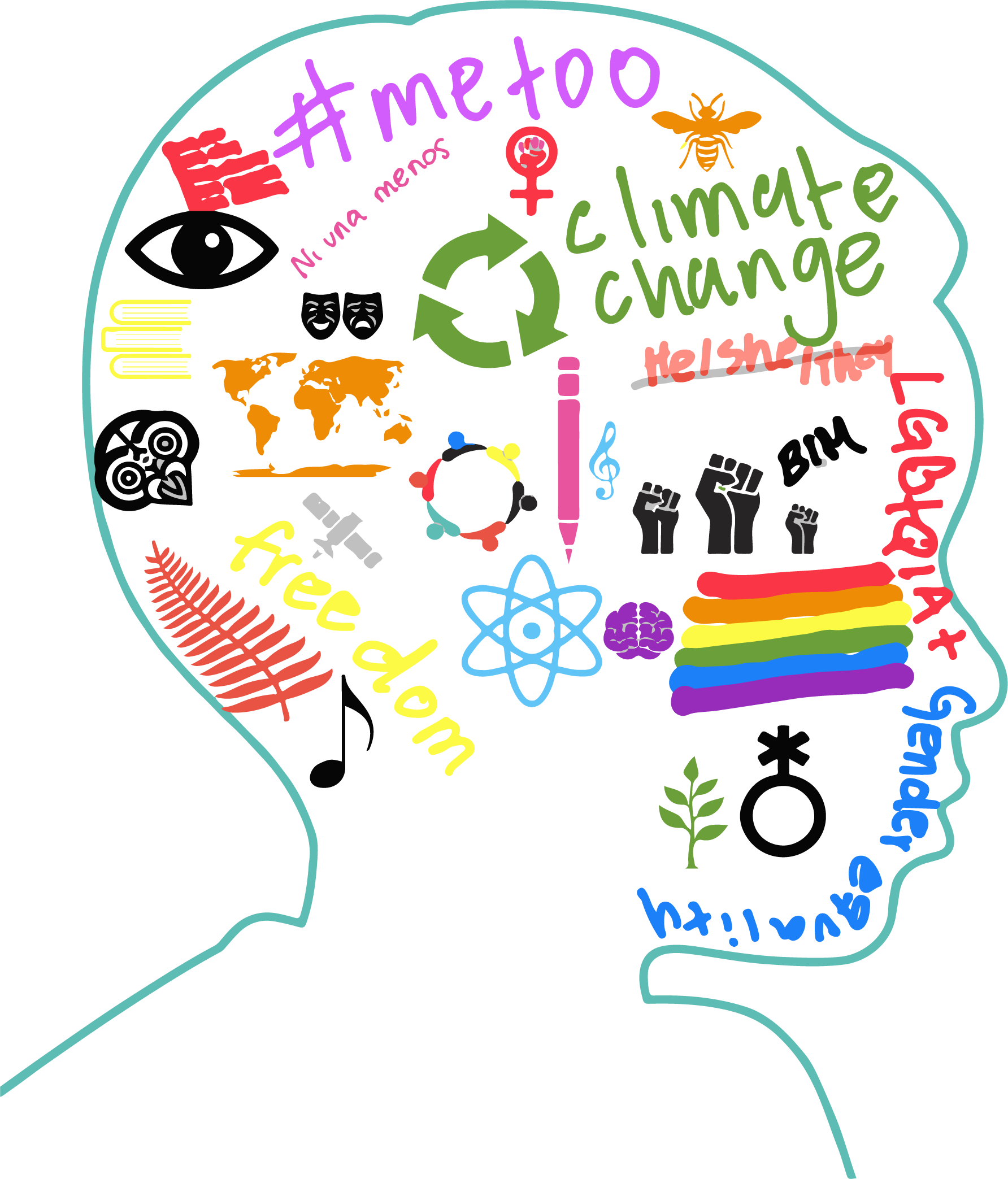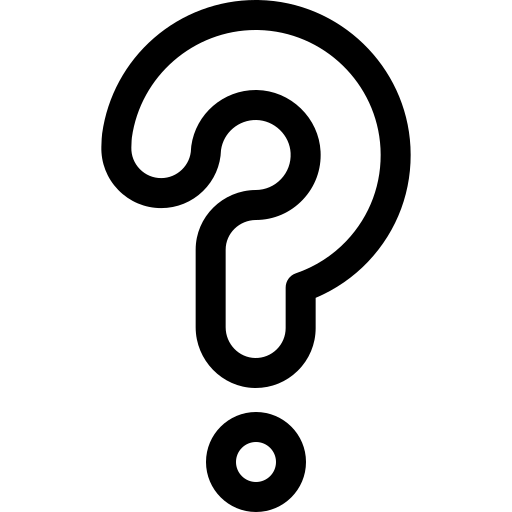
Juan José Garces Olmos

Image settings
Image settings
Introduction
My research project as a summer scholar looked at possibilities of re-imagining initial teacher education (ITE) through a theoretical lens of critical feminist posthumanism and new materialism and supporting student teachers in early childhood (ECE) to view themselves (i.e., 'humans'), their work and subjectivity in relation to and ‘inter-action’ with a more-than-human world. Neoliberal and neo-colonial discourses shape ITE in Aotearoa New Zealand. As a result, teacher preparation is often narrowed to a seemingly linear, standardised process with predicted outcomes for students. However, one may ask, what may happen if we start thinking of ITE and teacher preparation as a process of 'teacher becomings' interwoven in innumerable configurations of places, times, matters and meanings? To address this question, the project utilised critical feminism posthumanism, new materialism and critical pedagogies (Barad, 2007; Braidotti, 2022; Haraway, 2016) along with my personal understanding of indigenous Māori learning to look critically at ITE and teacher work within an intersectional and more-than-human world.
Methodology

Image settings
Image settings
Initial Teacher Education (ITE) in
Aotearoa New Zealand
ITE is the core program developed and delivered by tertiary institutions across Aotearoa to teach and qualify experienced beginning teachers that are ‘ready’ to ‘teach’. According to the Teaching Council of Aotearoa New Zealand (n.d., para. 3), Tertiary institutions are to “primarily outcome-focused with provider discretion where appropriate, and seek to give schools, centre and kura greater assurance that ITE graduates are well prepared to be effective beginning teachers from day one on the job.” The current state of ITE in Aotearoa New Zealand is shaping student teachers to be compliant with neoliberal and neo-colonial effective teaching practices. Therefore, this research focuses on western human, non-human, more-than-human, and posthuman theories to reimagine the purpose of ITE.
Image settings
Image settings
Research Image

Image settings
Research Questions

Image settings
Image settings
● How does ITE address critical pedagogies and educational theory in their programs?
● What do students in ITE programs understand about human, non-human, and more-than-human interactions in the classroom?
● How can ITE programs be reimagined to embrace a more-than-human world?
Image settings
Findings
The initial analysis of ITE papers and student assignments illustrated that neoliberal and neo-colonial discourses shaped student teachers’ views of themselves, their teaching practice and the purpose of ECE. With the ITE regulations focused on developing ‘core competencies’ necessary for students to be ‘ready’ to ‘teach’, it seems less effort was put into critical engagement with broader socio-economic and political issues shaping professional identities and practices in ECE. Findings also alluded that issues of superdiversity, intersectionality, climate change, queerness, gender equality, culture and the non-human in ECE and broader education contexts were looked to challenge a status quo in ECE through collective activism rather than ensuring neoliberal ‘individual effective practice’.
Image settings
Discussion
Neoliberal and neo-colonial discourses and human-centred epistemologies favoured standardised approaches and measurable learning outcomes in ITE. Centred on the human, their agency, learning, development, and advancement, ITE seemed to give little attention to problematising the concept of the ‘human’, “Man” as “the measure of all things” (Braidotti, 2022). This project argues for making sense of a collective ‘we’ in ITE, a sense of living in and with a more-than-human world. Drawing on the data analysis and literature review, it advocates for ITE that will support student-teachers to critically examine intra-actions among and between human, non-human and more-than-human entities and take them into account in teaching practice (Diagram 1, Braidotti, 2022). Re-imagining ITE programs through a posthuman lens could offer student-teachers a critical framework to explore the interconnectedness of the human, places, matters, times, and thoughts and resist neoliberal and neo-colonial discourses in teaching practice.
Image settings
Conclusion
By taking a critical feminist, new-materialist and posthumanist lens (Barad, 2007; Braidotti, 2022; Haraway, 2016) at the literature and data gathered in an ITE programme, this project addressed and provoked us to ask:
● If/How can we re-imagine ITE as ‘a difference-rich’, ‘entangled’, ‘intra-active,’ and jointly produced ever-shifting process between and among human, non-human, and more-than-human 'actants'?
● What would such ITE, and early childhood education, feel and look like in a bicultural democratic Aotearoa New Zealand society? What differences could it make?
Research Questions
Methodology
Image settings
Acknowledgements
Special thanks to Dr. Olivera Kamenarac, The University of Waikato, and the Summer Research Scholarship Programme.
Image settings
Barad, K. (2007). Meeting the universe halfway: quantum physics and the entanglement of matter and meaning. Duke University Press.
Braidotti, R. (2022). Posthuman feminism. Polity.
Haraway, D. J. (2016). Staying with the trouble: making kin in the chthulucene. Duke University Press.
Teachin Council of Aotearoa New Zealand. (n.d.). Programme requirements and approval. https://teachingcouncil.nz/professional-practice/ite-providers/programme-requirements-and-approval/
References
Image 1. Human, non-human, and more-than-human entities, issues and matters.
Image settings
Disclaimer. Large parts of this poster were initially developed for the University of Waikato summer research scholar poster function.



